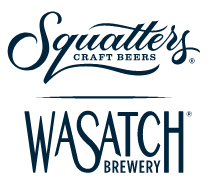By now we are likely sticking with some of our New Year’s resolutions, or we may have fallen off the wagon. One of the most popular, and often most challenging things to tackle is nutrition. I have seen a number of nutrition “challenges,” diets and fads come and go. Largely unsuccessfully for many people. The root problem is that many of these approaches aren’t about creating good habits. Rather, they are overly strict and we set the clock and mark our calendars for when we are finished. This often derails us and we are back to bad habits. Setting yourself up for success with GOOD eating habits is key to seeing lasting results and may be easier than you think.
Before we dive into some of the habits, let's talk about food. For some, this may be old news but others may find this incredibly helpful in building a foundation for understanding what we eat.
Foods include both macronutrients and micronutrients. While micronutrients are important, we are going to focus on the macronutrients. Also, know that if you are eating a variety of real, good quality foods, the micronutrients often take care of themselves. Macronutrients fall under three categories.
Protein
Examples: chicken, fish, red meat, some types of cheese/dairy, eggs, tofu
Carbohydrates
Examples: rice, bread, beans, fruits, vegetables, grains, root vegetables
Fat
Examples: nuts, avocado, butter, nut butters, oil, some types of dairy
It’s important to have a balance of these macronutrients in our diet so we can fuel ourselves properly. Over time, you may find that you function better with higher calorie counts of one or more of the macronutrients but understanding what they are is key. I often find people trying to make good choices but unfortunately don’t realize what they are eating. A perfect example is someone looking to add protein to their diet with the addition of black beans or peanut butter. While each of these foods has protein in them, the black beans are overwhelmingly carbohydrates and peanut butter, fat. Another more common one may be trying to get more fruits and vegetables in their diet and it turns into a “smoothie” that has loads of additional sugar or fat due to other ingredients.
Remember that this is all about creating good habits.That means WHATEVER you choose to do NEEDS to be sustainable if you plan on it working and actually making a healthier version of you. The most simple approach to take aside from all diets, opinions and naysayers is to EAT REAL FOOD. Shop the perimeter of the grocery store. If it’s perishable, it’s likely good for you, if it’s in a box, we can do better. Stay away from sugar and processed foods. With that in mind, here are some simple things we can do to make a BIG difference.
Eliminate Sugar Filled Drinks:
This could fall under your typical sodas, sports drinks or some alcoholic drinks. Also, take a look at some of the fruit juices or smoothies that are commonly found in stores. Even the fancy ones that seem like they only have “healthy” options. The ultimate trap are the “coffee” drinks that aren't so much coffee anymore. Pumps of syrup, whip cream and different types of milk can have an effect on nutritional content. They are often incredibly high in sugar along with carbohydrates. I know one person that lost 40 lbs by simply eliminating soda from their diet! This is a bit of an anomaly since they were having quite a bit of it, but the point is that sugar can cause some serious harm. It’s also addictive and can be one of the more difficult things to change in your diet. Take care of it now and you will be in a far better position in the future.MAKE One Meal/Day:
This habit alone may be a game-changer for you. Breakfast is often the easiest one to tackle at first. Whatever you plan on having, make it. This might look like 2-3 eggs or egg whites, some avocado and a small bowl of oatmeal or fruit bowl of your choice. BAM! Done and already on the right track. This simple habit can help you get needed calories at the start of the day along with showing you how simple it can be to prepare your food. Just knowing this can help you create the same habits with other meals later down the road.Don’t Go Without Eating for More Than Three Hours:
One of the things I often see is people actually under-eating which affects their metabolism. If our metabolism slows down from under eating, your body may be more likely to hold onto the calories you are giving it. It’s important to give yourself the fuel needed throughout the day to keep your metabolism going. It will also avoid the crashes throughout the day that we may be all too familiar with. Your energy will be higher, cravings will be less, you will be more mentally sharp and avoid the “hanger” bouts like me!Plan Ahead:
This goes hand-in-hand with the three things already listed above. Planning may come in the form of you having some snacks on hand that are REAL food (think apple, some deli meat or beef jerky and a small amount of nuts of your choice). It might also mean that one of the meals you make has you intentionally making more for some leftovers you can use. There are a variety of good casseroles that you can find out there that are easy to heat up again. Going back to the concept of making breakfast you may find yourself better equipped to do it at night. If you’re not an early riser and it’s tough to get out of bed, try having things prepped the night before and sitting in the fridge. All you would have to do is cook your eggs and the rest of the meal could be ready to eat.
Follow the 80/20 Rule:
It’s important that we let ourselves live a little! I like to think of 80% of my meals being on the higher quality and “good” side throughout the week. Once the weekend arrives or if I’m going to be out of town for a short vacation, there is some built in wiggle room. That’s the other 20%. If you know that it’s your time to relax a little, have a few slices of pizza and don’t stress. Enjoy the beer with your buddies. Ultimately, you are only one meal away from getting back on track. If you build in some cushion, it’s MUCH easier to get back on board the next day. No one is perfect and when we allow ourselves to have some flexibility, it makes sticking to quality meals easier.Food Should Not Be a Reward:
This may strike a real chord with some of us. It’s important to recognize that you don’t need to “earn” your food. All the workouts in the world won’t outrun poor nutritional choices. You were created and built to enjoy food and it is your fuel. Treat your body well with the right types of foods and you will reap the benefits in simply feeling better as well as performing better at all the things you want to do outside of the gym. Healthy eating habits eliminate the feeling of “guilt” and can show you how much food can actually do for you.Try to Have One of Each Macronutrient at Each Meal:
Balance with our food intake can be as easy as being aware of the macronutrients we mentioned above. If you are looking for more direction, you can use what is called the “hand/eye method”. It’s a great way to begin and give yourself a baseline. Males use two hands and females use one. Why? Men are typically larger and will burn more calories throughout the day. Below are the quantities of each:
Carbohydrates:
Men: 2 cupped handfuls
Women: 1 cupped handful
Men: 2 palms (size and thickness)
Women: 1 palm (size and thickness)
Fat:
Men: 2 Thumbs Size
Women: 1 Thumb Size
Men: 2 Fist Size
Women: 1 Fist Size

You can use this simple image that we provide at Park City Fit for our new members. It’s a starting point and we can learn a lot from it. One last thing to consider, which is a real eye-opener, is to keep a food log for a week. This isn’t about making you feel bad for what, or how much you eat. It’s about awareness. Write down what you eat each day and at the end of the week take a look back. What are you doing well that you can continue? What can you improve on? What habits do you need to start forming to live a healthier lifestyle that will pay dividends on your well being in the future? Simply being aware can be enough to give us a healthy nudge to get going in the right direction again!
Don’t overwhelm yourself with diets, fads and restrictions. Keep it simple to start and you will learn what works well for YOU over time. Types of foods, quantities, recipes, etc. It all comes with time and before you know it, you will have good, and rewarding eating habits.















